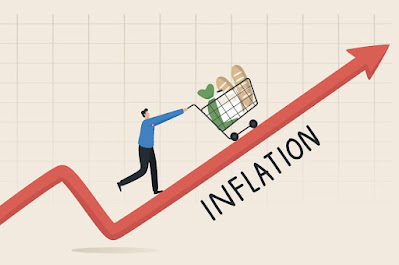What Would You Do With Your Insurance Savings?
There's a television commercial on TV. It's a insurance commercial. In the commercial, the man is happy he saved 10% on his insurance premiums.
Of course, right away, everyone is talking about how he would spend the money. The daughter says that she wants music then changes her mind and wants music lessons instead.
I don't remember what the wife wanted.
But the neighbour pops out of nowhere and say that they can finally get that shared fence.
Eventually, an ice cream truck pulls up and they all get ice cream. Neighbour included.
So what's the big deal?
Well, for one, instead of saving the money the commercial is appealing to people want of stuff.
If you had an extra 10%, what would you do with the money?
This insurance company isn't the only one guilty of marketing this way. There are other commercials on TV and radio that ask you similar questions.
One radio spot I heard appealed to the idea of a vacation with the savings you get from changing insurance companies. Another spot introduced family reunification during the holidays.
Here's a novel idea. Instead of spending the savings and spend the money as if you were going to spend it anyway, why not save the savings and enjoy the discount?
When I changed insurance companies, we saved approximately $93.91 a month or $1,126.92 a year.
What did we do with the savings?
Well, we didn't buy anything extra with the money. We didn't go on a lavish vacation. We didn't buy music CDs or buy the latest in the tech world. We just pretended the money wasn't available to us and we put the money into our investment accounts.
What can $93.91 get you? Well, last I checked the Vanguard Canadian ETF we buy, VCN, is $28.60. That's 3 units of VCN. If bonds are your thing, VAB costs $26.13. That's an extra 3 units as well.
If the TD e-series is your thing, then you can put the entire $93.91 into your account. You'll need to top it up to $100 as minimum purchases are that amount. However, if you do pre-authorized deductions, then you can deduct $93.91 automatically without any problems.
If you're in a position where you're still trying to build up your savings, then the $1,126.92 is a good base for an emergency fund. Just make sure the money isn't tied up in a GIC or something long term.
If you need to pay down your bills (like credit cards, line of credit, etc.), that is a great way to reduce the amount of interest you owe.
Alternatively, you can also put the extra money into your mortgage to help pay it down a little faster.
Sure, $1,126.92 extra a year doesn't look like much, but whatever your interest rate, that is effectively the return you're getting back. If your mortgage rate is 5%, then your rate of return on the extra payments is 5%! Plus you'll be paying your mortgage off years sooner thanks to these seemingly small extra mortgage payments.
Whatever you decide to do with your money, that's up to you.
Seriously though, if you're on this blog, why are you considering spending it on stuff you don't need?
Of course, right away, everyone is talking about how he would spend the money. The daughter says that she wants music then changes her mind and wants music lessons instead.
I don't remember what the wife wanted.
But the neighbour pops out of nowhere and say that they can finally get that shared fence.
Eventually, an ice cream truck pulls up and they all get ice cream. Neighbour included.
So what's the big deal?
Well, for one, instead of saving the money the commercial is appealing to people want of stuff.
If you had an extra 10%, what would you do with the money?
This insurance company isn't the only one guilty of marketing this way. There are other commercials on TV and radio that ask you similar questions.
One radio spot I heard appealed to the idea of a vacation with the savings you get from changing insurance companies. Another spot introduced family reunification during the holidays.
Here's a novel idea. Instead of spending the savings and spend the money as if you were going to spend it anyway, why not save the savings and enjoy the discount?
When I changed insurance companies, we saved approximately $93.91 a month or $1,126.92 a year.
What did we do with the savings?
Well, we didn't buy anything extra with the money. We didn't go on a lavish vacation. We didn't buy music CDs or buy the latest in the tech world. We just pretended the money wasn't available to us and we put the money into our investment accounts.
What can $93.91 get you? Well, last I checked the Vanguard Canadian ETF we buy, VCN, is $28.60. That's 3 units of VCN. If bonds are your thing, VAB costs $26.13. That's an extra 3 units as well.
If the TD e-series is your thing, then you can put the entire $93.91 into your account. You'll need to top it up to $100 as minimum purchases are that amount. However, if you do pre-authorized deductions, then you can deduct $93.91 automatically without any problems.
If you're in a position where you're still trying to build up your savings, then the $1,126.92 is a good base for an emergency fund. Just make sure the money isn't tied up in a GIC or something long term.
If you need to pay down your bills (like credit cards, line of credit, etc.), that is a great way to reduce the amount of interest you owe.
Alternatively, you can also put the extra money into your mortgage to help pay it down a little faster.
Sure, $1,126.92 extra a year doesn't look like much, but whatever your interest rate, that is effectively the return you're getting back. If your mortgage rate is 5%, then your rate of return on the extra payments is 5%! Plus you'll be paying your mortgage off years sooner thanks to these seemingly small extra mortgage payments.
Whatever you decide to do with your money, that's up to you.
Seriously though, if you're on this blog, why are you considering spending it on stuff you don't need?



Comments
Post a Comment